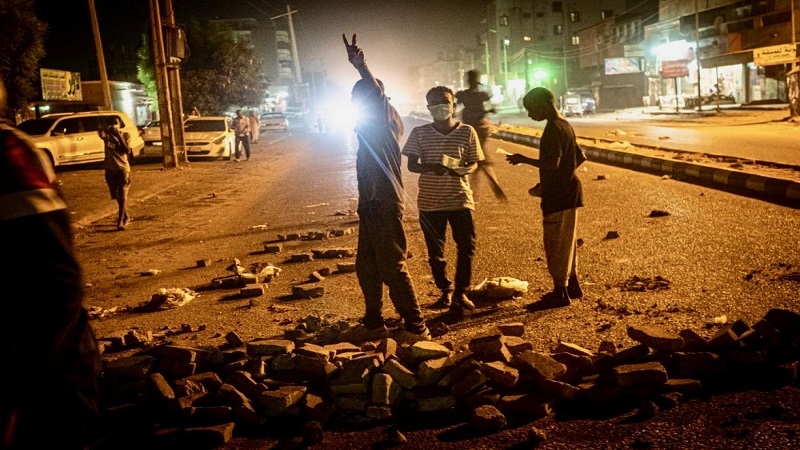Sudanese protest leaders on Saturday said they accepted the creation of a civilian-majority governing body for a political transition in Sudan, as proposed by an Ethiopian envoy. A draft of the Ethiopian proposal seen by Reuters suggested that the sovereign council would be made up of seven civilians and seven members of the military, with one additional seat reserved for an impartial individual. The ruling military council has yet to reveal its decision on the Ethiopian proposal, AFP said.
Sudan has been wracked by tensions between protest leaders and generals, who seized power after ousting president Omar Bashir in April, and the situation was exacerbated after a bloody 3 June crackdown on a protest sit-in demanding civilian rule.
“We think that our acceptance of the proposal is a major leap towards meeting the goals of the revolution, which are freedom, peace and justice,” protest leader Babiker Faisal told reporters in a brief statement.
“It will put the country on the right track to create the transitional period that would usher in sustainable democracy.”
The council was meant to meet the Ethiopian envoy on Saturday, Faisal said, but the meeting was postponed.
Ethiopia has stepped up its efforts to resolve the political crisis in Sudan since the deadly dispersal of a long-running protest camp outside army headquarters in Khartoum. The crackdown killed dozens and wounded hundreds.
Later on Saturday, a group of young protesters took to the streets in Khartoum’s twin city of Omdurman, chanting “free revolutionaries, we will keep on track”.
Ahmed, a 21-year old protester, said he would keep demonstrating until justice is served for his brother, who was killed during the dispersal of the sit-in. “I am burning inside. I want justice for my brother,” he said.
Since the break up of the sit-in, demonstrations have been restricted, particularly with heavy deployment of the paramilitary Rapid Support Forces (RSF).
Several pick-up trucks packed with RSF were roaming around the area where the small demonstration was held in Omdurman.
Witnesses say protesters set tyres on fire in some streets in the city.
The bloody 3 June break-up of the rally came after talks between protest leaders and the generals failed to reach an agreement on the composition of a new ruling body and who should lead it – a civilian or soldier.
In previous talks before the crackdown, protest leaders and the generals had agreed on a three-year transition period and to form a 300-member parliament, with two-third lawmakers from the protest movement.
But the deputy chief of the ruling transitional military council, General Mohamed Hamdan Dagalo, dismissed the idea that the umbrella alliance would get two-thirds of the lawmakers.
Dagalo, speaking at a rally of his supporters in a village outside of Khartoum, said it is “not possible” for the alliance to take two-thirds of parliament.
Hemeti dismisses alliance
“No one accepts this,” said Dagalo, widely known as Hemeti, who also heads the RSF.
Protesters allege that it was members of the RSF who carried out the 3 June dispersal of protesters.
At least 128 people have been killed in the crackdown, the majority of them on that day, doctors linked to the protest movement say.
The health ministry put the death toll at 61 nationwide.
The generals deny they ordered the army HQ protest broken up, insisting they authorised only a limited operation to clear drug dealers from around the camp.
It expressed “regret” over the “excesses” that happened on 3 June.
There have been no direct talks since them, but Ethiopian Prime Minister Abiy Ahmed and the African Union have been trying to mediate between the sides.
[source: middle east eye]






 WhatsApp us
WhatsApp us 

